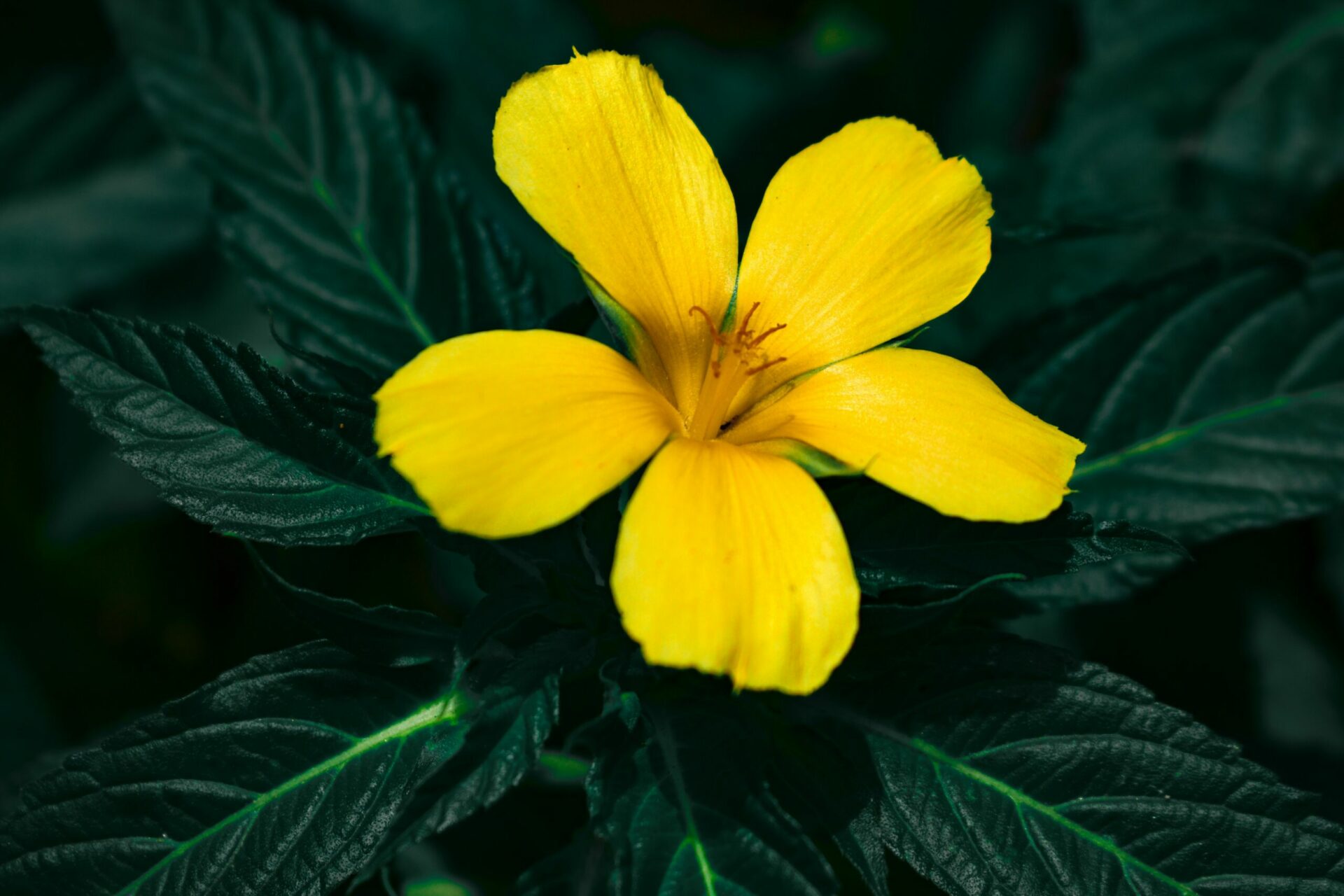Botanical Description:
Scientific Name: Turnera diffusa
Description: Damiana is a small, aromatic shrub native to Central and South America. It belongs to the Passifloraceae family and typically grows up to two meters in height. The plant has serrated, lance-shaped leaves, and its flowers are small, aromatic, and have a yellow hue. Damiana produces small fruits with a distinctive fragrance.
Disclaimer:
This Materia Medica is provided for informational purposes only and should not replace professional medical advice. Please consult with a qualified healthcare practitioner or herbalist before using any herbal remedies.
Therapeutic Actions:
- Adaptogenic Properties: Damiana is believed to have adaptogenic properties, helping the body adapt to stress.
- Aphrodisiac: Traditionally, damiana has been used as an aphrodisiac, supporting reproductive health.
- Nervine Tonic: Damiana is considered a nervine tonic, potentially supporting the nervous system.
Constituents:
- Terpenoids: Damiana contains various terpenoids, contributing to its aromatic properties.
- Flavonoids: Flavonoids are present in damiana, potentially offering antioxidant effects.
- Phenolic Compounds: Damiana may contain phenolic compounds, contributing to its therapeutic actions.
Traditional Uses:
- Aphrodisiac and Libido Support: Damiana has a traditional use as an aphrodisiac, believed to enhance libido and sexual function.
- Relaxation and Stress Relief: As a nervine tonic, damiana has been used to promote relaxation and relieve stress.
- Digestive Tonic: Damiana is sometimes used as a digestive tonic, aiding in mild digestive discomfort.
Dosage and Preparation:
- Infusion: Prepare a damiana infusion by steeping dried leaves in hot water. Drink as a tea.
- Tincture: Damiana tinctures, usually alcohol-based extracts, can be taken following recommended dosages.
- Capsules: Commercially available damiana capsules provide a convenient form for supplementation.
Cautions and Considerations:
- Pregnancy and Breastfeeding: Pregnant or breastfeeding individuals should avoid damiana due to its traditional use as an aphrodisiac.
- Allergies: Individuals with known allergies to plants in the Passifloraceae family should exercise caution.
Conclusion:
Damiana, with its aromatic leaves and traditional uses, offers potential therapeutic actions in the realm of adaptogenic support, aphrodisiac properties, and nervine tonicity. As an adaptogen, it may assist the body in managing stress, while its historical use as an aphrodisiac suggests a connection to reproductive health. The nervine tonic properties hint at its potential role in promoting relaxation. Damiana can be prepared as an infusion, tincture, or in capsule form, making it accessible for various preferences. While it has a generally favorable safety profile, pregnant or breastfeeding individuals and those with specific allergies should exercise caution and seek guidance from qualified healthcare practitioners or herbalists before use. Damiana, embedded in traditional practices, presents an intriguing option for those exploring herbal remedies to support overall well-being.





